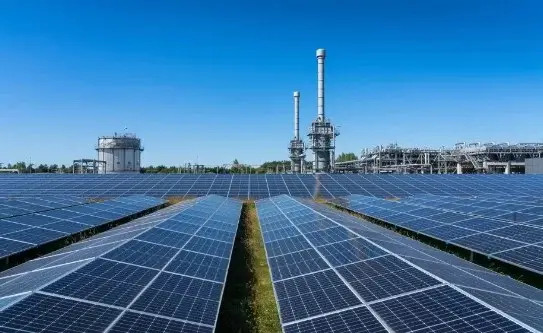Every year, solar energy is becoming more and more established in the industrial sphere as one of the alternative energy sources. In today's world, where attention to environmental sustainability and responsibility is becoming increasingly important, industrial enterprises are in the spotlight. They are looking for effective ways to reduce their environmental impact and ensure a stable energy supply. The growing interest in solar energy in industry and the role it plays in ensuring energy sustainability and saving money for the enterprise is opening up new prospects for the development of industrial enterprises.
Benefits of solar power plants for industrial enterprises
1. Reliability and stability of energy supply
Solar power plants provide industrial enterprises with a reliable and stable source of energy. Dependence on changes in fuel prices or general energy infrastructure is minimal, which guarantees the continuous operation of production processes even with fluctuations in the energy market or possible network failures.
2. Economic efficiency
Analysis of long-term investments in solar energy demonstrates its high economic benefits compared to traditional energy sources. Despite the initial cost of installing solar panels, operating costs are reduced, resulting in significant savings over the life of the power plant.
3. Reducing operating costs
The introduction of solar power plants allows industrial enterprises to reduce energy costs and reduce dependence on external energy suppliers. This is especially true in an environment of volatile energy prices and regular fluctuations in the energy market, allowing enterprises to control their operating costs and increase their competitiveness.
Technical advantages of large solar power plants
1. Scalability
Large solar power plants are highly scalable, which allows you to increase their power depending on the needs of an industrial enterprise. Flexibility in planning and expansion of power plant capacity allows you to effectively respond to changes in energy consumption and production growth, ensuring continuous energy supply.
2. Space optimization
Modern technologies make it possible to make the most efficient use of the available space for placing solar panels. Optimizing the placement of panels, including the use of various shapes and installation configurations, as well as taking into account terrain features, allows for maximum utilization of space and resources, which increases the efficiency of energy generation.
3. Control and monitoring
Solar power plants are equipped with modern control and monitoring systems that ensure continuous and efficient operation of the installation. These systems allow you to control energy production, automatically adjust the operation of equipment depending on changes in weather conditions and provide rapid detection and elimination of faults, which minimizes losses and ensures stable operation of the power plant.
Examples of successful implementation of large solar power plants in industry
Despite the potential of solar energy and its widespread implementation in world practice, industry in Ukraine does not yet widely use solar power plants. One of the reasons for this is the lack of sufficient government support, as well as the difficulty in obtaining financing for investment in such projects.
Despite the need for a sustainable and environmentally friendly source of energy in many industrial enterprises, input costs are high for the construction of solar power plants and the long payback period create obstacles to their implementation. However, in recent years, technological advances have significantly reduced the cost of solar panels and improved their efficiency. New technologies help reduce payback periods, which as of 2024 are only 2-3 years. However, despite this, difficulties in obtaining permits and regulations also remain significant obstacles to the development of solar energy in industry.
In order for industrial enterprises in Ukraine to actively implement solar power plants, a change in approach on both the business side is necessary , and the state. It is important to create incentives and benefits for investing in solar energy, as well as conduct an information campaign about the advantages and opportunities of this type of energy.
Despite the current




